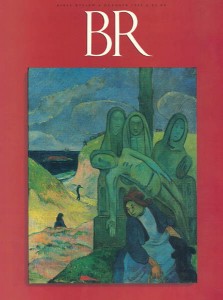Finding Morality In Luke’s Disturbing Parables
Are there limits to love and generosity? Is wealth a good thing? Should justice be impartial? Does following the commandments and giving to the poor make a person acceptable to God? Luke has a few surprises for us.

A long tradition of theological interpretation has taken the sting out of the most famous stories and parables in the Gospel of Luke. Today we are no longer challenged and offended by them. Many of these stories and parables are read in Sunday church services regularly. They include the Prodigal Son (Luke 15:11–32), the Unjust Steward (Luke 16:1–13), the Rich Man and Poor Lazarus (Luke 16:19–31), the Unjust Judge (Luke 18:1–8a) and the Pharisee and the Publican (Luke 18:9–14).
Only Luke records these stories; there are no parallels to them in any of the other Gospels of the New Testament. Luke must have copied them from a source that was not accessible to the writers of the other Gospels, and it is commonly held that among them one finds some of the most genuine parables of Jesus.
Already a library member? Log in here.
Institution user? Log in with your IP address.

